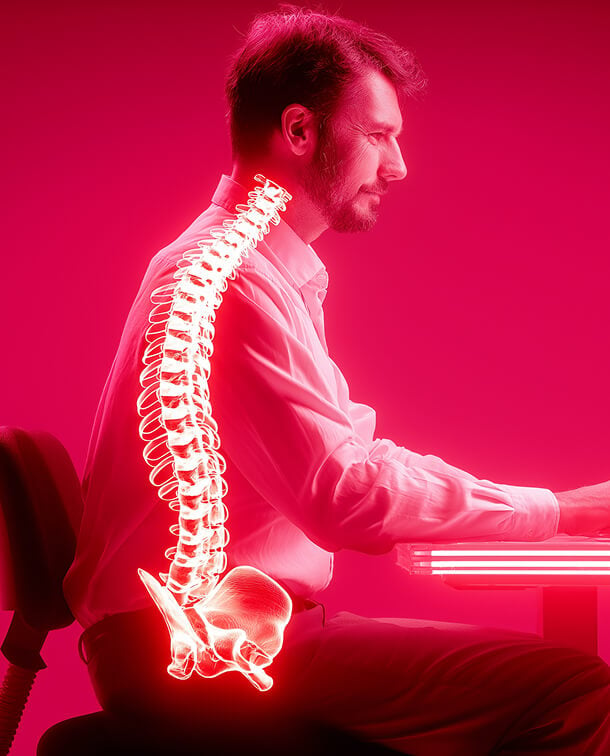More and more, people are seeking out ways to not only improve the quality and meaning of their lives but also ways to live longer. We want to know what to eat, what supplements to take, how to exercise, and how to sleep. The list goes on as we seek the answer to “How can we extend our years?”. Although there are so many factors connected to longevity, we want to discuss one that is maybe less obvious – your posture. Is there actually a correlation between your posture and longevity?
The Impact of Bad Posture on Our Health
While it may not be obvious, there's compelling evidence to suggest that your posture has a significant impact on your general health, independence, and life expectancy.
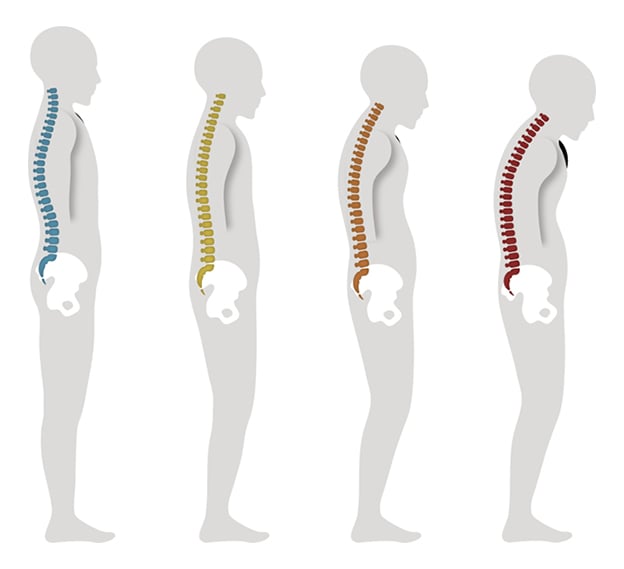
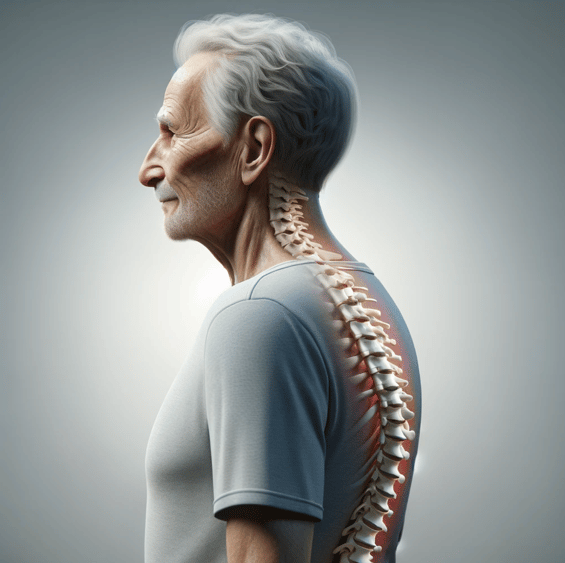
Researchers in Japan studied the effects of kyphosis (slumped posture), which is directly caused by poor posture over time, on independence and mortality.1 They found that subjects with kyphosis, vs a group with no kyphosis, had a greater loss of independence and a higher rate of mortality over a 6-year period. Another similar study was done in Japan by Kamitami et al, and the findings were similar.2 The greater the level of kyphosis, the greater the loss of independence and decreased life span, by up to 393%!
Additionally, a study by Anderson and Cowan looked at the relationships of measurable variables in people over 70 years old and their lifespan.3 They found that height, body weight, blood pressure, hemoglobin, hand grip, cardiothoracic ratio, and pulse rate were not valid predictors of life span. What they did find as a valid predictor of lifespan may surprise you: degree of kyphosis.
Although these studies were done with the elderly, we should all be concerned!
Take a look around next time you are out in public. Do you see the epidemic of poor posture due to technological advances all around you? This kyphotic posture formerly associated with the elderly has now infiltrated younger and younger generations. Our focus needs to shift from simply thinking about exercise and nutrition when we think of health and wellness. We need to truly consider how poor posture will affect future life spans!
This kyphotic posture not only affects our life spans long term, but it has ongoing implications that can affect our quality of life:
- Pain and Injuries: Chronic discomfort, especially in the neck and back, can result from slouching or maintaining poor posture. And we know that poor posture leads to muscle imbalances that affect the way we move and exercise, which can lead to pain and injury. This cycle of pain and injury from muscle imbalances can cause us to be less active which can affect our overall health and wellbeing throughout the lifespan.
- Circulatory and Respiratory Problems: Blood flow and lung capacity are greatly helped by an aligned spine, so poor posture can hurt your body’s ability to absorb oxygen and nutrients.
- Digestive Issues: When you slouch, you are asking for stomach problems. Acid reflux and sluggish digestion can be caused by slouching, which compresses the abdominal organs.
- Mental Wellness Issues: There is a psychological element to poor posture. Dealing with chronic pain from muscle imbalances can result in stress, anxiety, and depression, all of which have been shown to have a negative effect on your quality and quantity of life.
Do you see how all of these effects of poor posture play into the cycle that leads to decreased independence and shorter lifespans?
Let’s Get Serious About Good Posture
Given the significant impact poor posture has on your health and lifespan, it's crucial to look at what positions you spend most of your days in. For many of us, it’s sitting. If you’re sitting for work most days, and your body is not well supported, your posture will inevitably suffer. You’re either supporting your future health or your future kyphosis. If you care about your health and longevity, it becomes critical to look at your chair and your workplace setup.
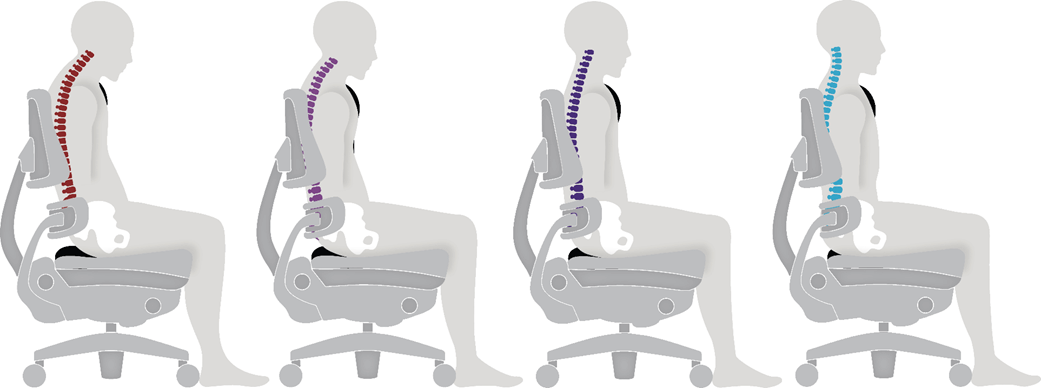
The Chair: There are too many of us who have never considered investing in our office chair, even though we spend more than half of our days sitting! A valid concern when considering a new chair is “Will it actually be worth the money?”. Here are a few things that can help you:
- Look for pelvis support- Despite what we’ve been told for years, lumbar support is not the answer. Rather a chair that supports lower at the top of the pelvis will induce a nice lumbar curve and support you in an upright posture.
- Adjustable upper back support- When sitting in an upright posture you may notice that your chair doesn’t support your upper back in this position. Look for a chair that can provide support to the upper back for long sitting days to prevent falling into a slouched posture.
- Pressure relieving seat- A good seat is critical when striving for an improved upright posture during the day. Sitting on a mesh surface will create high peak pressures since there is minimal immersion allowed into the seat surface. This results in fidgeting and slouching to relieve the pain.
-2.png?width=565&height=506&name=MicrosoftTeams-image%20(9)-2.png)
The Workspace: You can have the best chair in the world but if you are not set up properly in your space, all the benefits can be negated. For example, if you are sitting upright and well-supported in your chair and your desk is too high, your shoulders will have to roll forward to reach up to the keyboard and you will end up in a slouched position. Things to consider in your workspace:
- Desk height- If you don’t have a height-adjustable desk, adjust your seat height so that your arms can reach the keyboard at a 90-degree angle of the elbow. Use a foot support if your feet don’t make full contact on the floor.
- Monitor level- Your monitor should be an arm’s length away with your eye gaze being 2” lower than the top of the monitor.
- Chair height- This height needs to be determined by your desk height and not your feet on the floor. Adjust seat height according to the instructions above.
- Wrists level- With proper desk and seat height, make sure your wrists are straight and at or below elbow level.
It’s time to start talking more about posture and its long-term effects on our quality of life, and even lifespan. Poor posture isn’t going away on its own, we need to be proactive to make the necessary changes!
If you are looking to improve posture and decrease pain while sitting, look no further than Anthros.
Anthros is the only chair in the world that is guaranteed to improve posture or your money back. The science-backed, patented design is registered with the FDA as a posture-improving chair and is proven to have the lowest pressure (most comfortable) cushion on the planet (verified by university testing).
Take the next step to reducing pain, increasing comfort, and maximizing performance!
FIX YOUR SITReferences:
- Hijikata, Y. et al. (2022) Association of kyphotic posture with loss of independence and mortality in a community-based prospective cohort study: The Locomotive Syndrome and Health Outcomes in aizu cohort study (lohas), BMJ open. Available at: https://www.ncbi.nlm.nih.gov/pmc/articles/PMC8971797/
- Kamitani K, Michikawa T, Iwasawa S, Eto N, Tanaka T, Takebayashi T, Nishiwaki Y. Spinal posture in the sagittal plane is associated with future dependence in activities of daily living: a community-based cohort study of older adults in Japan. J Gerontol A Biol Sci Med Sci. 2013 Jul;68(7):869-75. doi: 10.1093/gerona/gls253. Epub 2013 Jan 28. PMID: 23359541.
- Anderson F, Cowan NR. Survival of healthy older people. Br J Prev Soc Med. 1976 Dec;30(4):231-2. doi: 10.1136/jech.30.4.231. PMID: 1009273; PMCID: PMC478971.
- Clear, M. (no date a) Poor posture linked to decreased lifespan., Woodstock, GA Chiropractor. Available at: https://www.chiropractor-woodstock.com/blog/89187-poor-posture-linked-to-decreased-lifespan (Accessed: 22 November 2023).
- Sanders, M.J. and Koch, J.L., 2012. Habits of Health and Wellness. Physical Dysfunction Practice Skills for the Occupational Therapy Assistant-E-Book, p.187.
- Deaver, G.G., 1933. Posture and its relation to mental and physical health. Research Quarterly. American Physical Education Association, 4(1), pp.221-228.
- Harvey, R.H., Peper, E., Mason, L. and Joy, M., 2020. Effect of posture feedback training on health. Applied Psychophysiology and Biofeedback, 45(2), pp.59-65.
Recent Post
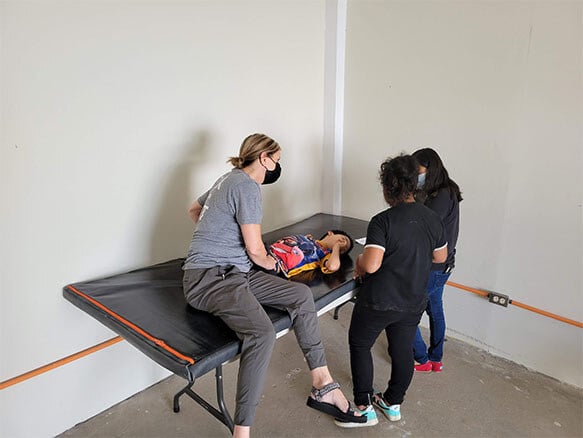
Four Lessons About Seating Everyone Can Learn from Wheelchair Users
September 18, 2025Working with wheelchair users has been an...
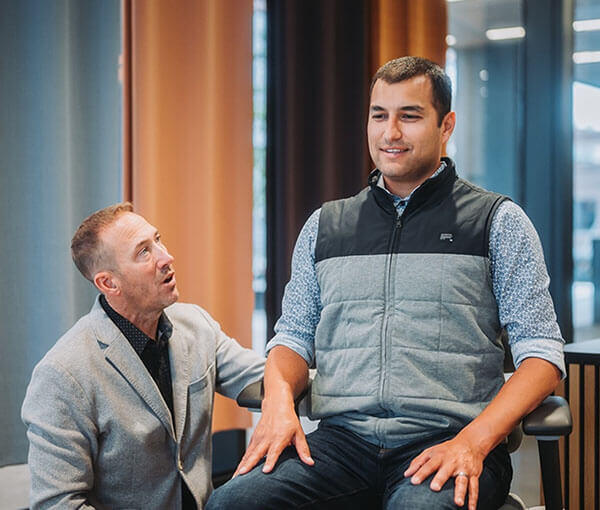
People Over Profits: Why Anthros Puts Comfort and Care First
September 17, 2025At Anthros, our mission is simple: to put people...






